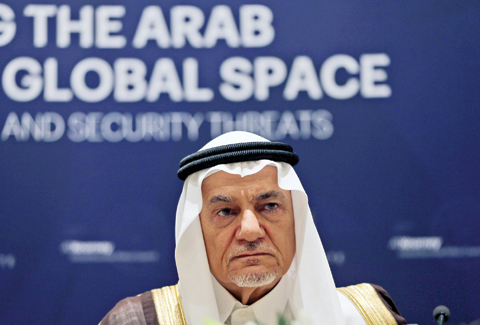DUBAI: Teary-eyed, keffiyeh-wearing activists protested the Zionist entity’s bombardment of Gaza at the UN climate talks in the UAE Sunday. Hindered by UN restrictions preventing them from raising Palestinian flags or chanting certain slogans, more than 100 activists in a COP28 “Blue Zone” venue, managed by the world body and not local authorities, demanded a Gaza ceasefire.
“We say to the Palestinian people that the international community may have forgotten you, but you are not alone,” said Asad Rehman, lead spokesman for the Climate Justice Coalition. “Free Palestine”, he told a sobbing crowd that echoed his chant before they were shushed because of UN guidelines prohibiting the naming of states, leaders or companies in activist actions within the COP venue.
Sunday’s solidarity gathering, the largest yet, still pales in comparison to mobilizations that have swept other parts of the world since the Zionist-Hamas war began on Oct 7. With activist actions kicking off on Sunday, the fourth day of the climate talks, it was not local authorities that tightened the protest space, but strict UN guidelines that governed previous COPs.
Organizers had to request permits, identify action zones and appeal for approval for banners, slogans and chants — some of which were banned. “We were not allowed to name states or raise (Palestinian) flags,” said Abderraouf Ben Mohamed of the Debt for Climate group, prompting activists to rely on the watermelon — a symbol of the pro-Palestinian movement — as a way to bypass restrictions.
Damian Godzisz, a staff member in the UAE’s COP28 team, said he was told to remove a Palestinian flag and keffiyeh scarf attached to his bag at the security check to the Blue Zone. “I find it insensitive that while other nations can display their national attire, the Palestinian flag and keffiyeh are restricted,” he said.
The war has cast a long shadow over the climate talks in Dubai, and has deeply impacted the Palestinian Authority’s (PA) COP28 delegation, which had been upbeat about its first-ever COP pavilion. Only 10 representatives managed to fly out for the event, with most cancelling their participation, Hadeel Ikhmais, a climate expert with the PA, told AFP. “It was really tough for us to come here, and up to the last-minute we were reconsidering our participation,” said Ikhmais, who had to embark on a nearly 11-hour journey stymied by checkpoints from her home in Bethlehem to Jordan’s airport to catch a flight to Dubai.
“What does climate justice mean, what does international law mean, when Palestinians are killed in cold blood and the world is just watching?” Ikhmais asked. “I want to go back. Honestly, we are counting the days just to go back home.” At the Zionist pavilion, just a few metres away, a book of posters of those held captive by Hamas was put on display beside a large banner that read: “Bring them home now.”
Maya Kadosh, the Zionist entity’s national coordinator for COP28, sported a dog tag carrying the same message and said she sensed bias among activists attending the climate conference. The Zionist entity had been planning a 1,000-strong representation at COP28, but the war reduced that figure to around 100, including some 30 officials with the government delegation, she said. – AFP










